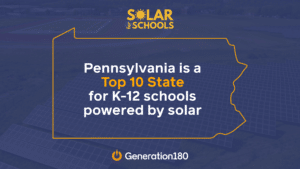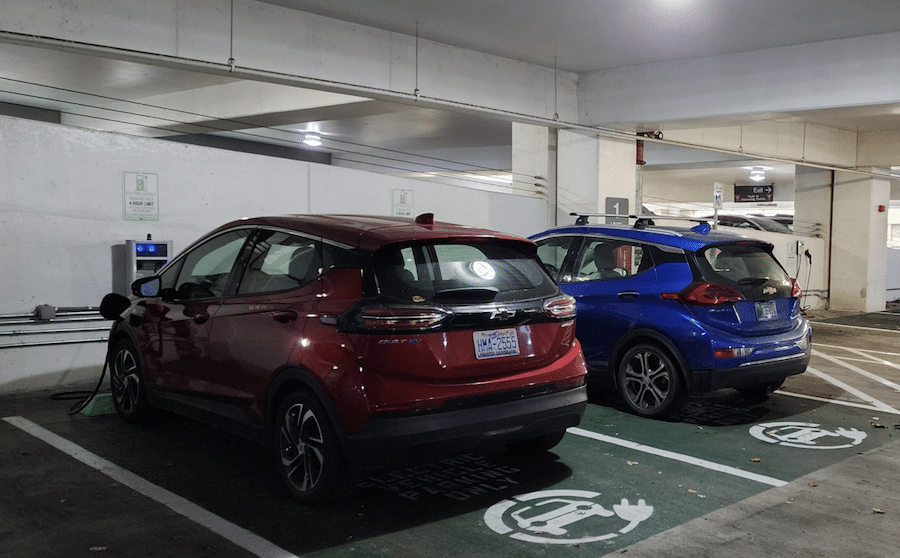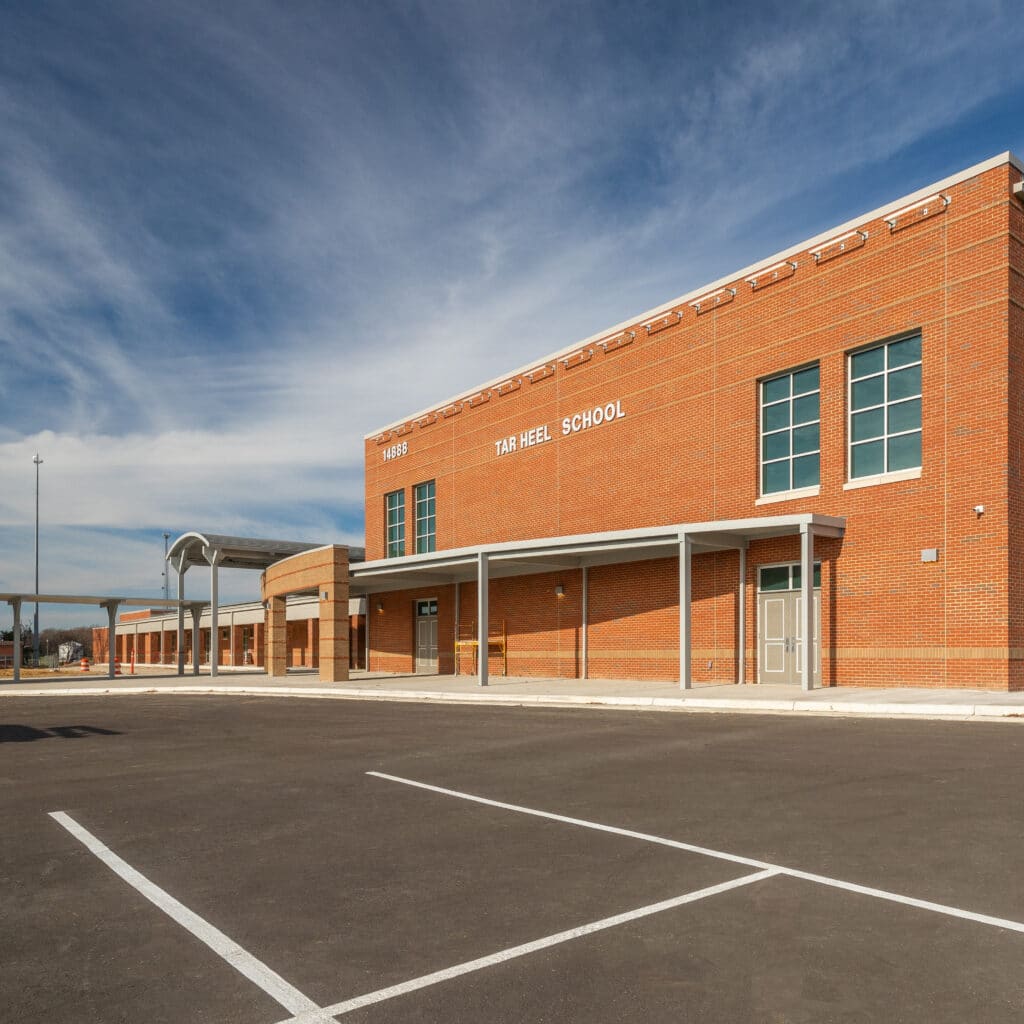Pennsylvania schools can now apply for the Solar For Schools Grant Program
Nonprofit Generation180 offers schools free solar facility site assessments and application support
Schools in Pennsylvania can now apply for state funds to install solar arrays that will power school buildings and generate cost savings that can be reinvested into student learning. Through the new Solar For Schools Grant Program, the Pennsylvania Department of Community and Economic Development (DCED) will award $25 million to statewide schools during this fiscal year. Grants will provide up to $500,000 per solar project. Applications will be accepted from November 1, 2024 to January 31, 2025.
Clean energy nonprofit Generation180 is offering free solar technical assistance for any eligible K-12 public school, charter school, career and technical school, or intermediate unit in Pennsylvania that is interested in applying for the grant. As a qualified provider, Generation180 will support schools in developing a solar project plan and complete a solar facility site assessment for the grant application. Through its Electrify Our Schools program, Generation180 offers a range of resources for K-12 schools interested in adopting clean energy technologies, including toolkits, a virtual help desk, case studies, and access to a national School Leadership in Clean Energy (SLICE) network.
“There has never been a better time for Pennsylvania schools to go solar. Schools now have a unique opportunity to generate their own power at a fraction of the cost by stacking state grant funds with federal tax credits. The Solar for Schools Grant Program opens the doors for so many schools to enjoy the benefits of lower energy costs, healthier communities, and hands-on STEM learning,”
Shannon Crooker, Pennsylvania Director at Generation180
Schools are eligible to receive a grant of 30-50% of the solar project costs (with a maximum of $300,000 to $500,000 per solar project), depending on the Market Value / Personal Income Aid Ratio determined by the Pennsylvania Department of Education (PDE). Schools can further reduce the cost to install and own a solar array by taking advantage of a federal tax credit that reimburses up to 70% of eligible solar project costs. School districts are eligible to apply for grants for solar projects at multiple school facilities.
Grant applications will be competitively evaluated based on a list of criteria, including amount of solar energy production, project feasibility and timeline, inclusion of an educational plan, and ability to access federal funding available through the Inflation Reduction Act. Funding will be distributed equally across three geographic regions based on population density. Solar for Schools Grant Program Guidelines are available at https://dced.pa.gov/programs/solar-for-schools-grant-program-s4s/.
“Solar for Schools has a lot of potential, and my number one goal for the program launch is to ensure schools with a diverse array of needs–from urban, suburban, and rural communities–submit strong applications so they can reap the benefits as soon as possible,” said Representative Elizabeth Fiedler, sponsor of the Solar for Schools Act (HB1032). “I’m incredibly proud of the bipartisan coalition we’ve built to pass the program, and I’m ready to see it become a reality!”

Solar power generation by Pennsylvania K-12 schools has more than doubled over the last four years, according to Generation180’s 2024 report, Powering a Brighter Future in Pennsylvania. With that recent growth, Pennsylvania earned a spot as a Top 10 State for solar adoption by K-12 schools.
“Pennsylvania is emerging as a nationwide leader in bringing the cost-saving and job-creating benefits of solar energy to school communities. The Solar For Schools Grant Program will help meet the growing demand of schools to lower electricity bills and generate their own power, and it is a model that other states are now looking to replicate,” said Crooker.















